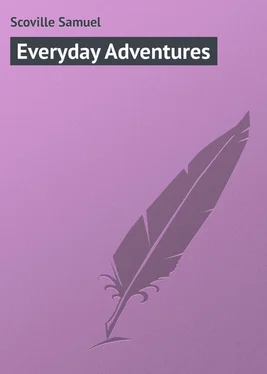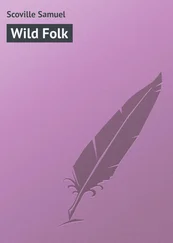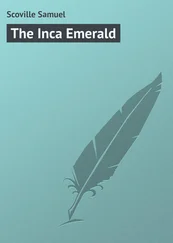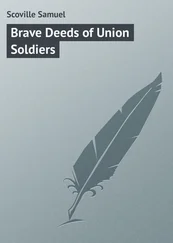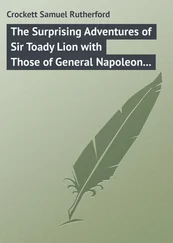Samuel Scoville - Everyday Adventures
Здесь есть возможность читать онлайн «Samuel Scoville - Everyday Adventures» — ознакомительный отрывок электронной книги совершенно бесплатно, а после прочтения отрывка купить полную версию. В некоторых случаях можно слушать аудио, скачать через торрент в формате fb2 и присутствует краткое содержание. Жанр: foreign_prose, foreign_language, на английском языке. Описание произведения, (предисловие) а так же отзывы посетителей доступны на портале библиотеки ЛибКат.
- Название:Everyday Adventures
- Автор:
- Жанр:
- Год:неизвестен
- ISBN:нет данных
- Рейтинг книги:3 / 5. Голосов: 1
-
Избранное:Добавить в избранное
- Отзывы:
-
Ваша оценка:
- 60
- 1
- 2
- 3
- 4
- 5
Everyday Adventures: краткое содержание, описание и аннотация
Предлагаем к чтению аннотацию, описание, краткое содержание или предисловие (зависит от того, что написал сам автор книги «Everyday Adventures»). Если вы не нашли необходимую информацию о книге — напишите в комментариях, мы постараемся отыскать её.
Everyday Adventures — читать онлайн ознакомительный отрывок
Ниже представлен текст книги, разбитый по страницам. Система сохранения места последней прочитанной страницы, позволяет с удобством читать онлайн бесплатно книгу «Everyday Adventures», без необходимости каждый раз заново искать на чём Вы остановились. Поставьте закладку, и сможете в любой момент перейти на страницу, на которой закончили чтение.
Интервал:
Закладка:
I felt a definite sense of relief, for it is usually more dangerous to meet a skunk than a bear. In fact, all the bears that I have ever come upon were disappearing with great rapidity across the landscape.
But there are times when a meeting with either Mr. or Mrs. Bruin is apt to be an unhappy one. Several years ago I was camping out in Maine one March, in a lumberman’s shack. A few days before I came, two boys in a village near by decided to go into the woods hunting, with a muzzle-loading shot-gun and a long stick between them. One boy was ten years old, while the other was a patriarch of twelve. On a hillside under a great bush they noticed a small hole which seemed to have melted through the snow, and which had a gamy savor that made them suspect a coon. The boy with the stick poked it in as far as possible until he felt something soft.
“I think there’s something here,” he remarked, poking with all his might.
He was quite right. The next moment the whole bank of frozen snow suddenly caved out, and there stood a cross and hungry bear, prodded out of his winter sleep by that stick. The boys were up against a bad proposition. The snow was too deep for running, and when it came to climbing – that was Mr. Bear’s pet specialty. So they did the only thing left for them to do: they waited. The little one with the stick got behind the big one with the gun, which weapon wavered unsteadily.
“Now, don’t you miss,” he said, “‘cause this stick ain’t very sharp.”
Sometimes an attacking bear will run at a man like a biting dog. More often it rises on its haunches and depends on the smashing blows of its mighty arms and steel-shod paws. So it happened in this case. Just before the bear reached the boys, he lifted his head and started to rise. The first boy, not six feet away, aimed at the white spot which most black bears have under their chin, and pulled the trigger. At that close range the heavy charge of number six shot crashed through the animal’s throat, making a single round hole like a big bullet, cutting the jugular vein, and piercing the neck vertebræ beyond. The great beast fell forward with hardly a struggle, so close to the boys that its blood splashed on their rubber boots. They got ten dollars for the skin and ten dollars for the bounty, and about one million dollars’ worth of glory.
Hasting homeward for more peaceful adventures, I find, near the road which leads to the railway station over which scores and hundreds of my friends and neighbors, including myself, pass every day, a little patch of marshland. In the fall it is covered with a thick growth of goldenrod, purple asters, joe-pye-weed, wild sunflowers, white boneset, tear-thumb, black bindweed, dodder, and a score or more of other common fall flowers.
One night, at nine o’clock, I noticed that an ice-blue star shone from almost the very zenith of the heavens. Below her were two faint stars making a tiny triangle, the left-hand one showing as a beautiful double under an opera-glass. Below was a row of other dim points of light in the black sky. It was Vega of the Lyre, the great Harp Star. Then I knew that the time had come. We humans think, arrogantly, that we are the only ones for whom the stars shine, and forget that flowers and birds, and all the wild folk are born each under its own special star.
The next morning I was up with the sun and visited that bit of unpromising marshland past which all of us had plodded year in and year out. In one corner, through the dim grass, I found flaming like deep-blue coals one of the most beautiful flowers in the world, the fringed gentian. The stalk and flower-stems looked like green candelabra, while the unopened blossoms showed sharp edges like beech-nuts. Above them glowed square fringed flowers of the richest, deepest blue that nature holds. It is bluer than the bluebird’s back, and fades the violet, the aster, the great lobelia, and all the other blue flowers that grow. The four petals were fringed, and the flower seemed like a blue eye looking out of long lashes to the paler sky above. The calyx inside was of a veined purple or a silver-white, while four gold-tipped, light purple stamens clustered around a canary-yellow pistil. That morning I wore on the train one of the two flowers which I allowed myself to pick. Every friend I met spoke of it admiringly. Some had heard of it, others had seen it for themselves in places far distant. None of them knew that every day until frost they would pass unheedingly within ten feet of nearly thirty of these flowers.
Sometimes the adventure, unlike good children, is to be heard, not seen. It was the end of a hot August day. I had been down for a late dip in the lake, and was coming back through the woods to the old farmhouse where I have spent so many of my summers. The path wound through a grove of slim birches, and the lights in the afterglow were all green and gold and white. From the nearby road a field sparrow, with a pink beak, sang his silver flute song; and I stopped to listen, and thought to myself, if he were only as rare as the nightingale, how people would crowd to hear him.
Suddenly from the depths of the twilight woods a thrush song began. At first I thought the singer was the wood thrush, which, besides the veery or Wilson thrush, was the only one that I had supposed could be found in that Connecticut township. The song, however, had a more ethereal quality, and I listened in vain for the drop to the harsh bass notes which always blemish the strain of the wood thrush. Instead, after three arpeggio notes, the singer’s voice went up and up, with a sweep that no human voice or instrument could compass, and I suddenly realized that I was in the presence of one of the great singers of the world. For years I had read of the song of the hermit thrush, but in all my wanderings I had never chanced to hear it before.
Lafcadio Hearn writes of a Japanese bird whose song has the power to change a man’s whole life. So it was with me that midsummer evening. Some thing had been added to the joy of living that could never be taken from me. Since that twilight I have heard the hermit thrush sing many times. Through the rain in the dawn-dusk on the top of Mount Pocono, he sang for me once, while all around a choir of veerys accompanied him with their strange minor harp-chords. One Sunday morning, at the edge of a little Canadian river, I heard five singing together on the farther side. “Ah-h-h, holy, holy, holy,” their voices chimed across the still water. In the woods, in migration, I have heard their whisper-song, which the hermit sings only when traveling; and once on a May morning, in my back yard, near Philadelphia, one sang for me from the low limb of a bush as loudly as if he were in his mountain home.
No thrush song, however, will ever equal that first one which I heard among the birch trees. Creeping softly along the path that evening, I finally saw the little singer on a branch against the darkening sky. Again and again he sang, until at last I noticed that, when the highest notes were reached and the song ceased to my ears, the singer sang on still. Quivering in an ecstasy, with open beak and half-fluttering wings, the thrush sang a strain that went beyond my range. Like the love-song of the bat, perhaps the best part of the song of the hermit thrush can never be heard by any human ear.
It was the morning of June twentieth. I stood at the gate of the farm-house where three roads met, and the air was full of bird-songs. For a long time I stood there, and tried to note how many different songs I could hear. Nearby were the alto joy-notes of the Baltimore oriole. Up from the meadow where the trout brook flowed, came the bubbling, gurgling notes of the bobolink. Robins, wood thrushes, song sparrows, chipping sparrows, blue-birds, vireos, goldfinches, chebecs, indigo birds, flickers, phoebes, scarlet tanagers, red-winged blackbirds, catbirds, house wrens – altogether, without moving from my place, I counted twenty-three different bird-songs and bird-notes.
Читать дальшеИнтервал:
Закладка:
Похожие книги на «Everyday Adventures»
Представляем Вашему вниманию похожие книги на «Everyday Adventures» списком для выбора. Мы отобрали схожую по названию и смыслу литературу в надежде предоставить читателям больше вариантов отыскать новые, интересные, ещё непрочитанные произведения.
Обсуждение, отзывы о книге «Everyday Adventures» и просто собственные мнения читателей. Оставьте ваши комментарии, напишите, что Вы думаете о произведении, его смысле или главных героях. Укажите что конкретно понравилось, а что нет, и почему Вы так считаете.
